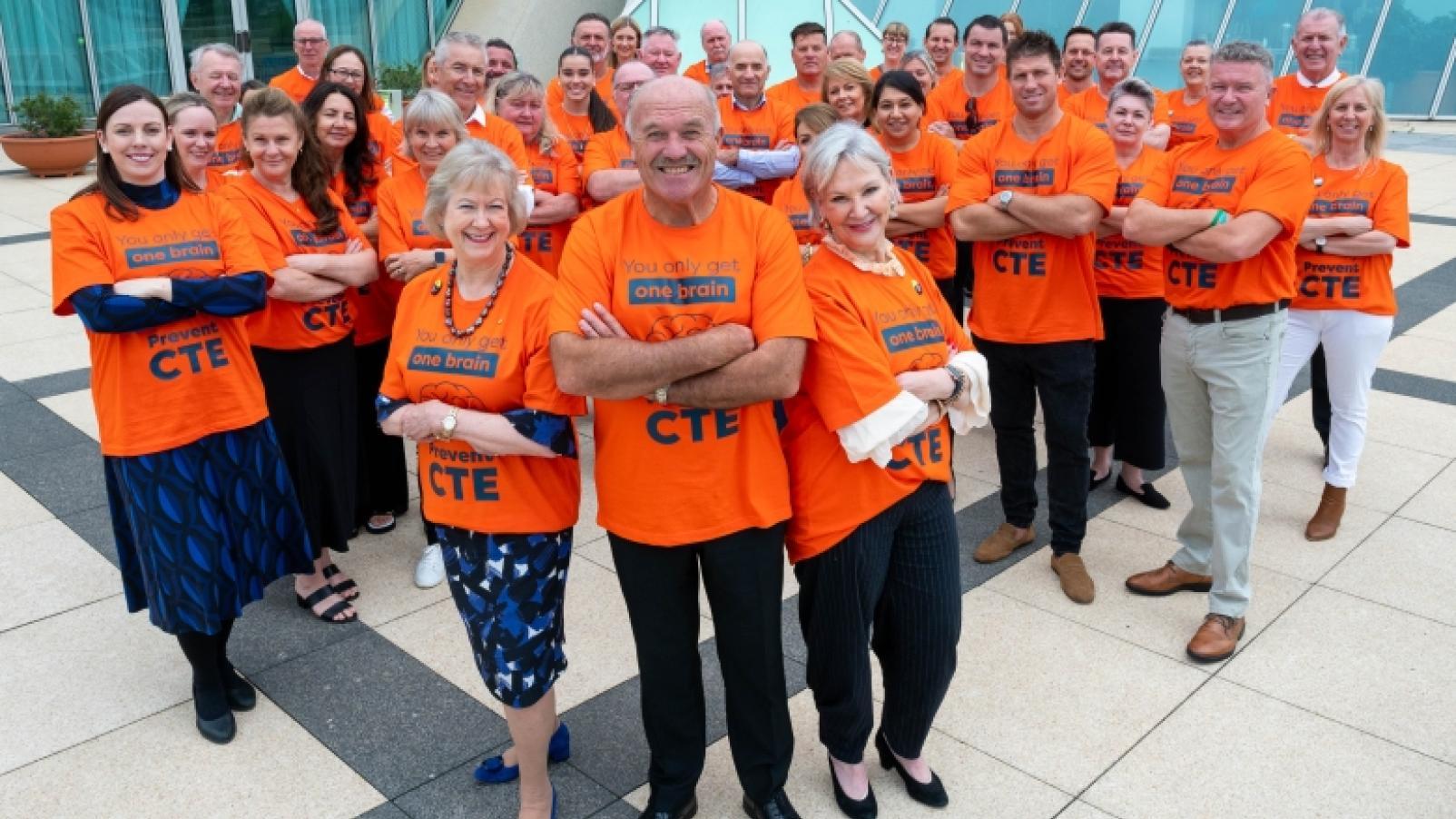Can repeated head injuries cause dementia?

The link between head injuries and dementia is increasingly gaining attention as more high-profile people reveal the long-term impacts of brain trauma.
One of those is rugby league legend Wally Lewis AM, who has been diagnosed with probable CTE (chronic traumatic encephalopathy).
Wally has spoken about the gradual realisation that the memory loss he was experiencing was more than simple forgetfulness.
“I remember first feeling a little concerned when that bit of forgetfulness that we all seem to have at some stage in our lives started to occur with almost monotonous regularity,” he said.
Following the death of his good friend and fellow rugby league player Paul Green, who was diagnosed posthumously with CTE, Wally undertook tests that led to a diagnosis of probable CTE.
“I’m fortunate that I can still function in everyday life but I often struggle making decisions and organising myself,” he said.
“I live by my diary. I write everything down - I can't rely on my memory.”
Wally, who is a Dementia Australia Ambassador, has called for greater awareness and changes to the way contact sports are played.
“We need to teach the players from the grassroots level the correct way to tackle, the correct place to put your head and to attempt to ensure that it’s not in a dangerous position that could cause harmful damage,” he said.
“It’s not a badge of honour to prove how tough we are by staying out on the field when we are injured.”
Beyond the football field
CTE does not just affect elite sports people.
Neurologist Dr Rowena Mobbs said domestic and family violence survivors, military personnel, and those in occupations such as mining were particularly at risk of repetitive brain injuries and therefore CTE.
“The longer the exposure to both concussion and sub-concussion, the higher the risk, and the greater the need for neurological monitoring” she said.
From being cool, calm and collected to exploding in fits of anger
A serious cycling accident was the final blow for former corporate lawyer and avid cyclist Robin McGilligan.
During his lifetime he had sustained numerous head injuries playing contact sports in his youth and cycling accidents as an adult.
Following a serious cycling accident several years ago he started experiencing excruciating head pains and his balance, spatial awareness and memory were also affected.
“I went from being a cool, calm and collected individual to someone who would explode in fits of anger – often directed at my amazing wife and daughters,” he said.
Robin is keen to share the message that CTE is preventable.
“There are so many opportunities to reduce further instances of CTE through more research, good policies and true collaboration between stakeholders,” he said.
“I absolutely love sports and still believe that the benefits of participating in sports on balance far outweighs any negatives.
“I am, however, a father of two very sporty and active daughters and have experienced first-hand the lack of awareness as to what to do when a child suffers a concussion.
“We need to work towards drawing up concussion protocols which can be rolled out to all activities.”
What is CTE?
Chronic Traumatic Encephalopathy (CTE) is a type of dementia that may affect brain function over time and can result in changes to mood, behaviour and cognitive function.
Research has identified an increasingly strong causal link between repeated head injuries and CTE.
The condition can be provisionally diagnosed by clinicians but can only be definitively confirmed by tissue examination after death.
You can find out more about the condition in Dementia Australia’s Joint Position Statement Concussion and Chronic Traumatic Encephalopathy in Australia.
You can also watch the event held at Parliament House where the impact of probable CTE was discussed.
Looking for support?
If you have any questions or want to talk through what you are experiencing, please call the National Dementia Helpline on 1800 100 500, email helpline@dementia.org.au or chat with us live.
You can read more on our CTE page or view our on-demand webinar.

